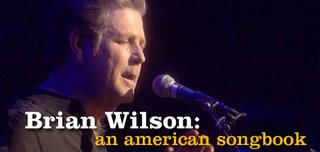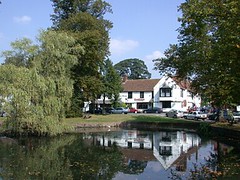
It’s been a real year of flashbacks to the 1960’s. The “Class of ‘66” web site has stirred up a lot of memories (especially the music), and my 8th graders have been studying the Cold War. I’ve been the resident expert because my colleague, the history teacher, wasn’t alive at the time. Boy, does that make me feel old!
When I first came to England in the 1980’s we had a teacher in the high school whom I remember very well. She was a short, blonde dynamo with a New York/New Jersey accent. (Sorry, I can’t tell the difference.) Her subject was Spanish, but had a PhD in Russian and she worked part time for the BBC as a translator. She used to take small groups of high school students to Moscow on field trips. This was just prior to the collapse of the Soviet Union. She retired to become a consultant several years ago, but she comes back regularly to speak to our 8th graders about her personal experiences. I’ll call her Dr. J.
This past week, the students had just finished viewing Rocky IV as an example of propaganda. In case you’ve forgotten, it’s an hour and a half’s worth of pure pro-American entertainment, well worth looking at again from a fresh perspective. Some of it is obvious, but some of the images are more subtle - the colors the characters are wearing, the music, the symbolic collapse of the USSR when the Russian crowd begins to cheer Rocky.
Just like in the movie, Dr. J. was watched by KGB. She knew they had a file on her. When she took students to Moscow, three of them had followed her around for several days. On her last day, she went to a street vendor and bought an ice cream, along with one for each of her three “guardians”. She went up to them and thanked them for their company and for taking such good care of her during her visit to Moscow (in fluent Russian).
Dr. J. also gave us some food for thought on the Cuban Missile Crisis. This was the one incident when the Cold War nearly erupted into a hot one. It was October of our sophomore year, 1962. She told us that Kruschev sent the missiles to Cuba without consulting Castro. This was in retaliation to the US having missiles in Turkey. The public agreement was that the USSR eventually agreed to remove the missiles from Cuba if the US promised not to attack Cuba. We learned from Dr. J. that, in a private agreement, the US had agreed to remove its missiles from Turkey.
At the height of the Cold War, there was great fear of an atomic attack. We practiced hiding under our desks or going out into the hallways and crouching against the walls with arms covering our heads. Not that this would have done any good, but we were seen to be doing something. Remember when everyone was talking about building air raid shelters under their homes?
We may not think of it as so, but the Vietnam and Korean Wars were a continuation of the Cold War. The US was attempting to “contain” the spread of Communism. China had fallen, then North Korea and, finally, Vietnam. (This was a war in which 80% of the people of Vietnam wanted a Communist government rather than the non-communist dictator whom the US supported. No wonder we were confused about why we were fighting there. For them, Communism meant an end to poverty and oppression. To the US, Communism was an un-democtatic disease to be contained at any cost.)
Dr. J. told us that when Gorbachev came to power in the Soviet Union, he brought in a new policy called “glasnost” which means “openness”. The real test of this was the Chernobyl accident which took place in 1986. When the nuclear reactor blew, he had a choice, denial or exposure. The silence lasted for 48 hours. He chose to let the world know. This triggered the gradual dissolution of the USSR which culminated in early 1990’s. The Cold War was over.
We grew up under the cloud of Nuclear War and MAD (Mutually Assured Destruction). Our classmates and friends may have fought and survived or died in Vietnam or Korea. Those who came back from Vietnam were irrevocably changed. These songs are only two of many which came to represent the turmoil of those times.
For What It's Worth
Stephen Stills, 1966
There's something happening here
What it is ain't exactly clear
There's a man with a gun over there
Telling me I got to beware
I think it's time we stop, children, what's that sound
Everybody look what's going down
There's battle lines being drawn
Nobody's right if everybody's wrong
Young people speaking their minds
Getting so much resistance from behind
I think it's time we stop, hey, what's that sound
Everybody look what's going down
What a field-day for the heat
A thousand people in the street
Singing songs and carrying signs
Mostly say, hooray for our side
It's time we stop, hey, what's that sound
Everybody look what's going down
Paranoia strikes deep
Into your life it will creep
It starts when you're always afraid
You step out of line, the man come and take you away
We better stop, hey, what's that sound
Everybody look what's going down
Stop, hey, what's that sound
Everybody look what's going down
Stop, now, what's that sound
Everybody look what's going down
Stop, children, what's that sound
Everybody look what's going down
Ruby
Kenny Rogers
You’ve painted up your lips
And rolled and curled your tinted hair
Ruby are you contemplating
Going out somewhere
The shadow on the wall
Tells me the sun is going down
Oh Ruby
Don’t take your love to town
It wasn’t me
That started that old crazy Asian war
But I was proud to go
And do my patriotic chore
And yes, it’s true that
I’m not the man I used to be
Oh, Ruby I still need some company
Its hard to love a man
Whose legs are bent and paralysed
And the wants and the needs of a woman your age
Ruby I realize,
But it won’t be long I’ve heard them say until I not around
Oh Ruby
Don’t take your love to town
She’s leaving now cause
I just heard the slamming of the door
The way I know I’ve heard it
Some 100 times before
And if I could move I’d get my gun
And put her in the ground
Oh Ruby
Don’t take your love to town
Oh Ruby for god’s sake turn around
 Finding the perfect gift for your friends and family members who don’t really need anything makes us frantic, especially at Christmas. As the Big Day advances and we haven’t found the Perfect Gift, we are tempted by expensive and unnecessary junk which may end up being returned, recycled or even thrown out. We buy goofy gifts or something inappropriate. The shopping frenzy turns an otherwise spiritual season into a depressing one which leaves us with the sense that we’ve missed something.
Finding the perfect gift for your friends and family members who don’t really need anything makes us frantic, especially at Christmas. As the Big Day advances and we haven’t found the Perfect Gift, we are tempted by expensive and unnecessary junk which may end up being returned, recycled or even thrown out. We buy goofy gifts or something inappropriate. The shopping frenzy turns an otherwise spiritual season into a depressing one which leaves us with the sense that we’ve missed something. 





